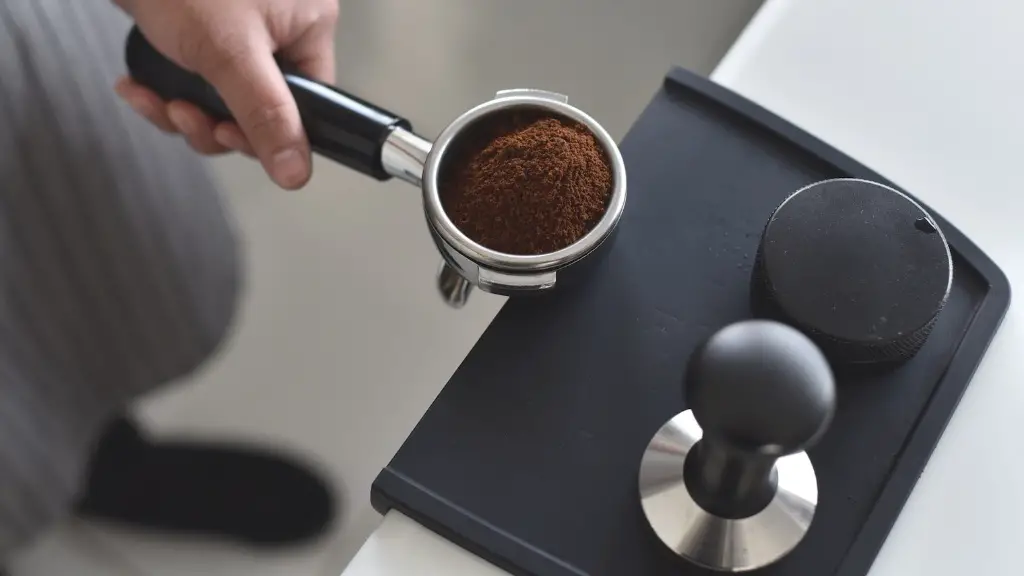Does Coffee Have Any Health Benefits For Diabetics?
Coffee is one of the most consumed beverages in the world and it is often enjoyed as a caffeine-rich pick-me-up. But for diabetic patients, it is important to know if it is safe to drink coffee, and if it has any specific health benefits.
Coffee has several compounds that are beneficial for health, including antioxidants and caffeine. These compounds may have positive effects on blood sugar and insulin levels, which is especially important for diabetics. A review of over 30 studies found that drinking at least three cups of coffee per day was associated with a lower risk of type 2 diabetes. The study also looked at decision and found that coffee may have a beneficial effect on controlling blood glucose and also on reducing cardiovascular disease risk.
However, while coffee may have these potential anti-diabetic benefits, it is important to remember that coffee can contain added sugar and calories, and in some cases, coffee can be high in fat and cholesterol. For people who are diabetic or at risk of diabetes, it is important to consider these macronutrient contents when drinking coffee.
What Is The Recommended Coffee Intake For Diabetics?
The World Health Organization (WHO) recommends limiting coffee intake to no more than five cups a day for adults. While this recommendation may be suitable for the general population, diabetics should be more mindful of their coffee consumption.
The American Diabetes Association (ADA) recommends limiting coffee intake to three cups per day, along with other lifestyle and dietary changes. The ADA also recommends that those with type 2 diabetes and other metabolic conditions should be aware of the sugar and calorie content of the beverage, and be mindful of including sugar-free options, like black coffee and espresso.
Are There Any Other Healthy Options For Diabetics?
For those diabetics who are looking for a healthier option that also provides the caffeine kick, green tea is a great alternative. Green tea has a lower caffeine content and fewer calories than coffee, while being rich in antioxidants and anti-diabetic compounds, such as catechins. Additionally, green tea can help reduce insulin-resistance and lower the risk of type 2 diabetes.
What Are The Risks Of Too Much Coffee For Diabetics?
Excessive caffeine consumption can have the opposite effect and can actually lead to an increase in blood sugar levels and insulin resistance. Furthermore, drinking too much coffee can reduce the absorption of certain medications and can lead to digestive issues, headaches, and insomnia.
Additionally, sugar-sweetened coffee can be high in calories and sugar content, leading to weight gain which can increase the risk of diabetes and other metabolic diseases.
Positive Effects Of Coffee On Diabetic Patients
In general, diabetics should be mindful of their coffee consumption and the associated risks. But, the positive effects of moderate coffee consumption should not be overlooked, as it has beneficial compounds that may reduce the risk of type 2 diabetes and improve glycemic control.
Moderate coffee consumption with a balanced diet may be beneficial for those with diabetes, and its effects may be even more pronounced in those who are already taking diabetes medications.
The Addition Of Milk Or Cream To Coffee And Diabetic Patients
When adding milk or cream to coffee, diabetics should be aware of the caloric content of the beverage. Whole milk, for example, is high in calories so should be consumed in moderation. For a healthier option, low-fat or skimmed milk should be used instead.
In addition, creamers can often be high in added sugar, so diabetics should consider using alternatives such as almond or soy milk, or opt for the traditional approach of drinking black coffee.
Advantages Of Drinking Decaf Or Instant Coffee For Diabetics
Decaffeinated and instant coffees are great options for diabetics. Decaf coffee has significantly less caffeine content than regular coffee, while also having a low-calorie content. Instant coffees, while also containing low caffeine content, are often lower in calories and are easier to prepare.
Conclusion
In conclusion, moderation is key for diabetics looking to enjoy caffeine from coffee. Regular coffee intake should be limited to three cups per day and sugar-sweetened varieties should be avoided. Healthier alternatives, like green tea, decaf and instant coffees, can be used as a tasty and nutritious way to get a caffeine kick.


